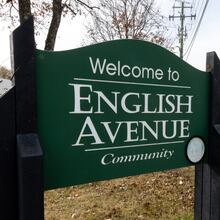The Rev. Jesse Jackson on Tuesday pushed Atlanta-based SunTrust Banks to back his call for billions of dollars in bank fines to help support people and communities still reeling from the Great Recession.
Jackson, who spoke during SunTrust’s annual shareholders meeting, said taxpayers bailed out the nation’s biggest banks to save the global economy and those same banks are now flush with profits. But victims of predatory lending practices and other pre-recession abuses, many of whom were minorities, haven’t fully recovered.
“We bailed out the big banks, but we didn’t bail out the victims,” Jackson said.
A report last year by Keefe, Bruyette & Woods found the nation’s largest banks have paid about $250 billion in federal fines for abuses to consumers since the financial crisis. The government largely deposited those fines into the general fund.
SunTrust repaid its nearly $5 billion in taxpayer aid under the Trouble Asset Relief Program in 2011. The company was hit with nearly $1 billion in fines from the U.S. Department of Justice related to mortgage and foreclosure abuses and committed to lending and mortgage servicing overhauls as part of a government settlement.
Jackson plans to attend the annual meetings of many of the nation’s largest banks and said he is scheduled to appear at Bank of America’s shareholder meeting on Wednesday in Charlotte.
The civil rights leader met with SunTrust Chairman and CEO Bill Rogers on Monday to discuss ways the bank could invest in minority and low-income neighborhoods, which he said remain “locked out” by a lack of investment.
On Tuesday, Jackson renewed his call for greater community investment and broader diversity at the nation’s financial institutions.
Jackson invoked the memory of the Rev. Martin Luther King and the civil rights gains made in a New South that Jackson said King created. But Jackson said the march for justice ahead is as much about equal access to resources than race.
He also raised concerns about SunTrust's pending merger with rival BB&T, saying the concentration of so much capital must be scrutinized.
SunTrust officials did not commit to backing Jackson’s call to direct fine money to hard-hit consumers. But Rogers said he and Jackson agree on issues surrounding income inequality and serving disadvantaged communities.
“We can’t pretend they don’t exist,” Rogers said of income inequality and issues housing affordability. He also touted the bank’s investments in financial literacy and housing initiatives.
“I think we’re totally aligned with what Rev. Jackson talked about.” Rogers said. “We will continue to meet and have dialogue. We were happy to have him here. I was inspired that he came.”
About the Author







